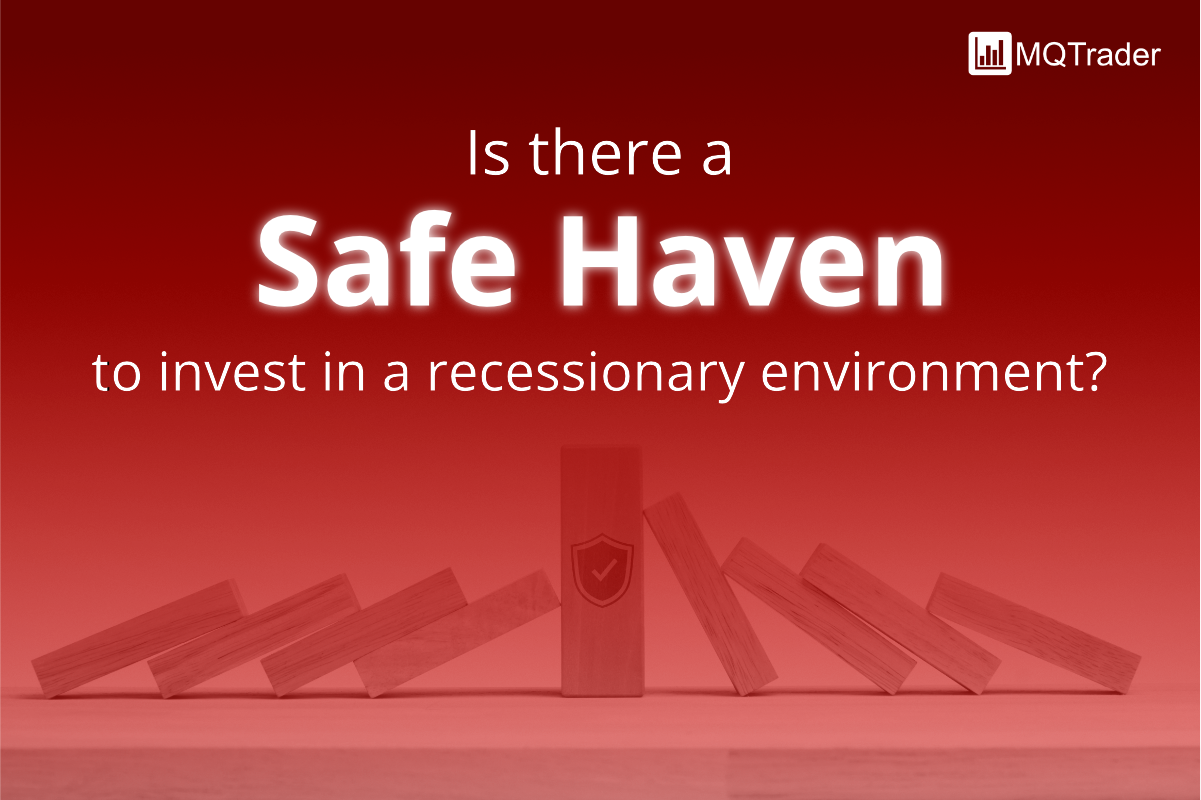Everything you need to know about recessions
MQTrader Jesse
Publish date: Wed, 12 Apr 2023, 10:19 AM
What is recession
A recession is defined by the National Bureau of Economic Research (NBER) as a significant decline in economic activity that is spread across the economy and lasts more than a few months (NBER, 2023). Economists use various indicators such as gross domestic product, income, employment, manufacturing, and retail sales data to determine whether a market is undergoing a recession.
Should we be afraid of it?
While investors tend to view a recession negatively due to the bearish sentiment and declines in economic activities, it is not necessarily all negative. Recession is a natural, unavoidable stage of the economic cycle that can help correct imbalances in the market, clearing the way for a return to growth. In the past, recessions have helped lower the inflation rate and ended the misallocation of investment capital field by dot-com or the housing bubble.
When did the recession happen in the past?
Global economies have experienced several recessions in varying degrees over the past 40 years. However, recessions have grown increasingly infrequent and don’t last as long because policymakers have gained a better understanding of the causes of past recessions and are better equipped to handle them.
The table below records the occurrences of recessions since 1990.
Recession | Year | Duration | Causes |
Asian Financial Crisis | 1997-1998 | 18 months | When Bangkok (Thailand) unpegged the Thai baht from the U.S. dollar, it set off a series of currency devaluations and massive flights of capital that spread across East Asia. |
The Dot-Bomb Recession | 2001 | 8 months | The collapse of the dot-com bubble contributed to one of the mildest recessions on record |
The Great Recession | 2007-2009 | 18 months | The nationwide downturn in U.S. housing prices triggered a global financial crisis |
The COVID-19 Recession | 2020 | 2 months | The COVID-19 pandemic spread to the U.S. in March 2020, and the resulting travel and work restrictions caused employment to plummet, triggering an unusually short but sharp recession. |
Table 1: Global recession period and its causes since 1990.
Can we still invest during a recession?
The histories of the financial market have shown that what goes down will eventually come back up, though the “road to recover” may be a bumpy one. As recession often comes with high-interest rates, investors have a chance to earn higher yields on their savings or fixed deposit accounts. There are also potential bargains for low-cost dividends counter in the stock market.
Investing in fundamentally sound companies with a strong track record of weathering recessions can provide a good opportunity for long-term growth. Companies with high market capitalization, consistent dividend payouts, and undervalued trading prices, such as Singapore banking counters, may be a good choice for investors during a recessionary environment. Additionally, saving money in banks for higher interest rates is also a good option for protecting capital.
Read this blog [sgx blog link] to know more about a safe haven to invest in a recessionary environment.
Our final thoughts
Although a recession may inflict hardship on businesses and individuals, it is a natural, unavoidable stage of the economic cycle that can help correct imbalances in the market, clearing the way for a return to growth. When a recession hits, investors can protect their capital by saving in banks for higher interest rates or investing in fundamentally sound counters for long-term investments.
Want to venture into a market that has global exposure and diversify your portfolio?
Open a trading account now with MQ Trader to start trading in SGX!
Community Feedback
We encourage traders to try out and evaluate the MQ Trader system and provide us feedback on the features you like to see in the system. We have received many positive feedbacks so far, and we are currently compiling and reviewing them for possible inclusion in the next release of the system.
We would like to develop this system based on community feedback to cater to community needs. Thanks to all those who have provided valuable feedback to us. Keep those feedback coming in!
Disclaimer
This article does not represent a BUY or SELL recommendation on the stock covered. Traders and Investors are encouraged to do their own analysis on stocks instead of blindly following any Trading calls raised by various parties on the Internet. We may or may not hold a position in the stock covered, or initiate a new position in the stock within the next 7 days.
Join Us Now!
MQ Trader stock analysis system uses Artificial Intelligence (AI), various technical indicators, and quantitative data to generate accurate trading signals without the interference of human emotions and bias against any particular stock. It comprises trading strategies that are very popular among fund managers for analyzing stocks.
MQ Trader stock analysis system is SPONSORED for MQ Trader members. To use this amazing tool, you can sign up via MQ Trader Sign Up!
Sign up for MQ Trader Affiliate now
We created the MQ Trader Affiliate Program so you can get attractive rewards for helping us spread the word. By becoming a MQ Trader affiliate, you're joining one of the best affiliate programs that have unlimited earnings potential. You will receive the necessary tools to unleash your potential to recruit more clients and thus extract maximum value from your affiliate marketing efforts.
MQ Trader Affiliate Program is free for everyone. To enjoy the attractive rewards, you can sign up via MQ Trader Affiliate Sign Up.
Reach Us Now!
Find us on i3Messenger now!
More articles on MQTrader Education Series

Created by MQTrader Jesse | Apr 13, 2023
Created by MQTrader Jesse | Aug 06, 2021
Created by MQTrader Jesse | Nov 01, 2019


















